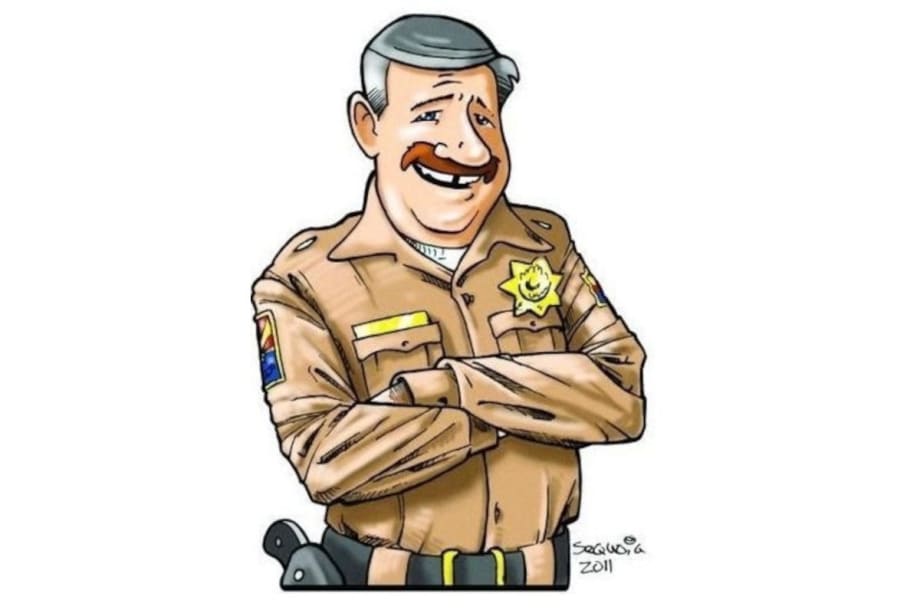“The wise man accustoms himself to coming trouble, lightening by long reflection the evils which others lighten by long endurance.“--Lucius Annaeus Seneca
One of my daily rituals is to open my Daily Stoic Newsletter from my e-mail and see what jewel of wisdom I can steal from the wise folks who send out that missive. When I was a little kid, I read that one of my childhood heroes swore to try to learn something new every day and I swore to do the same thing. Sometimes learning something that reaffirms an old belief reveals a truly valuable bit of knowledge, and I experienced this as I read about the Stoic exercise of Premeditatio Malorum, “thinking about evil,” as a way to preplan and prepare for bad events in our lives.
Crime fighters are especially wise to follow this path and we teach it in our lesson plans as “crisis rehearsal” or “visualization” or “mental practice.”
To be clear, this is NOT worrying; worrying is the negative and destructive exercise of rehearsing failure. If we fear an event and just think about the horror or trauma of the nastiness if it occurs, we are not preparing but rather stifling ourselves. We practice skills from behind cover, or getting to our feet when knocked down, or reloading when wounded, precisely because we know one of our brothers or sisters has needed that skill, and we can anticipate that we might one day need that skill as well. Worrying is just thinking about getting knocked down; crisis rehearsal is planning on winning.
Warriors know to plan for “coming from behind,” and in this day and age of so many ambushes, we have to have our minds right about fighting through such a terrible event. No coach worth a darn would fail to teach a football team the “two-minute drill,” and those who characterize this as teaching your players that they might be losing are missing the whole point. It’s about being behind but coming back strong with the confidence of having practiced the skills necessary to do so. This prevents panic, poor decision-making, and ultimately, losing. No one wants to think about being wounded and having to shoot and reload one handed, especially with the off hand, but mentally and physically practicing such a skill also reduces the trauma of such a terrible event should it occur.
Stoicism is often associated with such professions as the military, law enforcement, medicine, anywhere the extremes of human emotion and stress can occur. The mental strength gained through the practice of Stoicism serves these endeavors well.
A Roman centurion might read to his soldiers from a Stoicism manual called “The Enchiridion of Epictetus” before battle to prepare his people to be both physically and mentally strong. A philosopher, like Seneca, has much to tell us about enduring danger and suffering and what we can do to minimize and prepare for it. For example: “Everyone faces up more bravely to a thing for which he has long prepared himself, sufferings, even, being withstood if they have been trained for in advance. Those who are unprepared, on the other hand, are panic-stricken by the most insignificanthappenings.”
In this day and age, where law enforcement is facing the greatest challenges of my lifetime, each of you must decide it is in your best interest, the best interest of your agency, and of your community for you to mentally and physically prepare for whatever critical incident may come your way. I know some of you are the skeptical types and may feel visualization is some kind of California granola malarky, but studies have repeatedly shown how effective mental rehearsal is for improving skills. Combining mental practice with physical practice gives you not only a performance advantage but also helps mitigate the emotional impact of a spontaneous bad event, whether it be an ambush or distracted driver pulling out in front of you when you are “flying low” with lights flashing and siren wailing.
So here is some homework for you: 1. Mentally rehearse deadly encounters, unexpected crises, and hardships, and see yourself resolving and overcoming them. 2. Try to learn something new every day; subscribe to a newsletter or actively look up a website like Daily Stoic to expand your mind. 3. Keep reading POLICE and PoliceMag.com to keep abreast of our profession. 4. Finally, remember that skills are perishable and must be refreshed, so keep practicing the physical side of our profession and always be an advocate for being prepared for everything and anything. In short, Premeditatio Malorum, and then practice mentally and physically every day to fight and win.
Dave Smith is an internationally recognized law enforcement trainer and is the creator of “JD Buck Savage.” You can follow Buck on Twitter at @thebucksavage.













